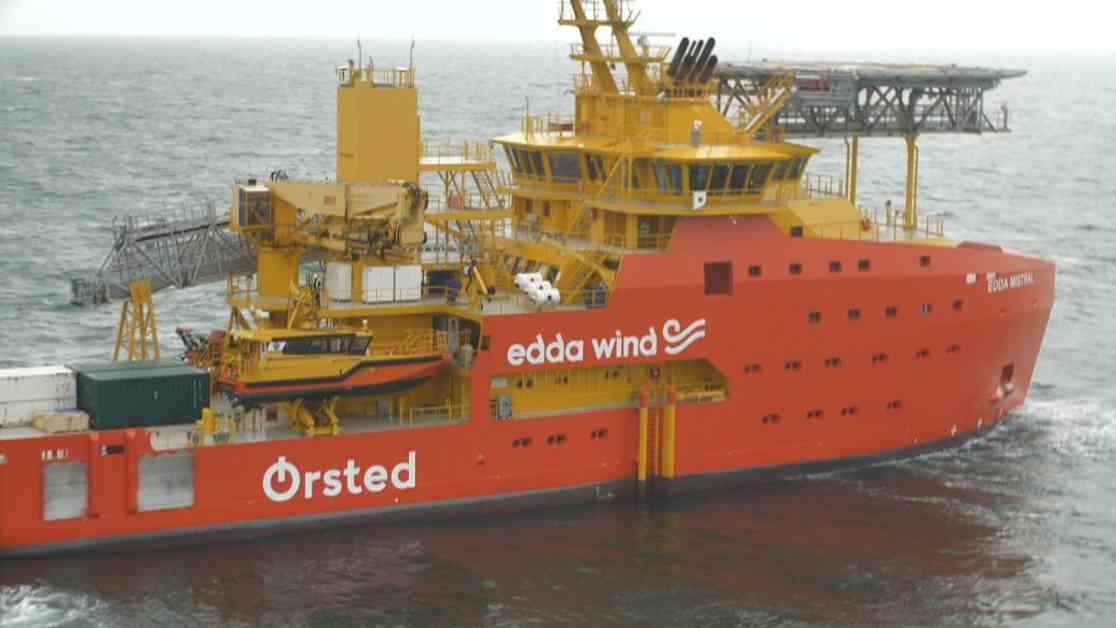The developer of the Hornsea 4 windfarm expansion has pulled the plug on the project, citing a slew of challenges that have made it too costly to continue. Orsted, the Danish company behind the project, made the announcement alongside revealing a higher-than-expected increase in profits for the first quarter, despite facing more obstacles in its offshore wind ventures.
Last year, the firm secured funding for both Hornsea 3 and Hornsea 4 through the government’s auction of renewable energy contracts. Together, these projects would have significantly expanded the existing Hornsea windfarm off the East Yorkshire coast, already the largest in the world. The potential addition of 2,400 MW of peak capacity could have powered 2.6 million homes. However, Orsted stated on Wednesday that the current form of Hornsea 4 was no longer feasible.
The company pointed to various adverse developments, such as rising supply chain costs, higher interest rates, and increased construction and operational risks within the planned timeline for a project of this magnitude. They mentioned evaluating future options for the development of Hornsea 4 while noting existing seabed rights, grid connection agreements, and Development Consent Orders.
This decision deals a blow to the government’s ambitions for green energy, aiming to reduce the UK’s dependence on natural gas for energy security and combat climate change. Orsted’s CEO, Rasmus Errboe, emphasized the company’s commitment to supporting the UK government’s offshore wind targets, despite discontinuing the Hornsea 4 project in its current form.
A spokesperson for the Department for Energy Security and Net Zero acknowledged the challenges posed by global inflation and supply chain constraints, expressing a willingness to collaborate with Orsted to revive the Hornsea 4 project. They highlighted a robust project pipeline to deliver clean power by 2030, emphasizing the importance of achieving energy targets through a mission-driven approach.
Industry body Energy UK’s CEO, Dhara Vyas, emphasized the critical role of wind power in reducing reliance on foreign fossil fuels and strengthening the UK’s energy resilience. The loss of the Hornsea 4 project raises the stakes for the upcoming Contracts for Difference auction round, AR7, which plays a pivotal role in achieving the country’s energy ambitions.
In 2024, wind surpassed gas as the UK’s largest power source, underscoring the significance of wind energy in reducing foreign fuel dependence and enhancing energy security. Vyas highlighted the economic benefits and long-term cost reductions associated with wind power, emphasizing its contribution to a resilient energy system powered predominantly by domestic sources.
Despite Orsted’s decision not being attributed to government policy, the importance of offshore wind in the UK’s energy future necessitates continued government support to ensure the success of future projects. The government’s commitment to energy security and cost reduction through a sustainable energy system remains crucial in achieving long-term goals.
In conclusion, the discontinuation of the Hornsea 4 project underscores the challenges faced by renewable energy developers in a changing economic landscape. While setbacks may arise, collaboration between industry and government is essential to overcome obstacles and advance towards a cleaner, more sustainable energy future.













